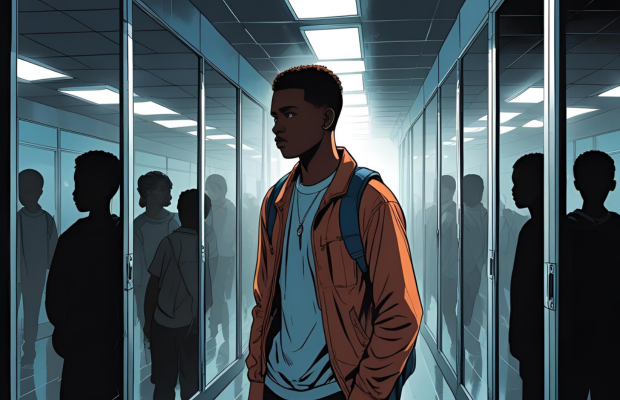The Silent Struggle: How Trauma Affects Black Boys in American Schools
What Kind of Trauma Do Black Boys Experience in Schools?
Black boys in America are disproportionately exposed to traumatic experiences inside and outside the classroom. This includes adverse childhood events, violence, family instability, community stress, and persistent racial discrimination. In schools, trauma often comes from being labeled, punished, or isolated for behavior rooted in unmet needs, rather than being offered help or support.
How Does Trauma Affect Black Boys’ Behavior and Academic Performance?
Trauma manifests in several critical ways that impact learning and behavior:
- Behavioral Referrals: Black boys are suspended and expelled at much higher rates than their white peers, often for minor or subjective offenses like “defiance” or “disruption.” Early and frequent discipline leads to disengagement and school pushout, not only in high school but as early as preschool and elementary years.
- Academic Impact: Trauma undermines self-confidence, focus, and classroom engagement, resulting in lower literacy and academic performance, especially on statewide English Language Arts assessments. These academic setbacks can fuel the cycle of negative labeling and further punitive measures.
- Mental Health: Trauma and exclusionary discipline also lead to chronic stress, damaged self-esteem, increased anxiety, and risk for depression and suicide among Black boys.
- Special Education Misplacement: Many Black boys are disproportionately placed in special education programs, not for diagnosed learning disabilities, but as a means to manage their behavior without addressing the underlying trauma.
Why Are Black Boys So Vulnerable to Trauma in American Schools?
Several systemic factors make Black boys especially susceptible to trauma in schools:
- Implicit Bias & Criminalization: Black boys are often perceived as older and more threatening than their peers of other races. Their energy and curiosity are misread as aggression or defiance.
- Lack of Representation: With very few U.S. teachers being Black men, Black boys rarely see themselves reflected in authority or mentorship roles. The absence of culturally competent educators means fewer opportunities for meaningful support.
- Racially Exclusionary Policies: Policies like “zero tolerance” disproportionately target Black students, sending the message that their behavior is a problem to be contained, not a signal of a child in need of support or intervention.
- Resource Gaps: Black boys are more likely to attend underfunded schools with less access to quality teachers, counselors, and extracurricular activities, all resources that buffer against the impact of trauma and support healthy development.
What Are the Consequences for Life Beyond School?
The cumulative effect of trauma and school-based exclusion leads to:
- Higher dropout rates.
- Reduced access to college and career pathways.
- Increased contact with the juvenile justice system, perpetuating the school-to-prison pipeline.
- Long-term psychological effects, including sustained patterns of mistrust, underachievement, and disengagement in adulthood.
What Can Schools and Communities Do To Help Black Boys Heal?
Trauma-Informed Solutions for Schools:
- Shift Discipline Policies: Move from exclusionary or punitive discipline to restorative practices that address the root causes of behavior and support healing.
- Increase Representation: Recruit and retain more Black male teachers and culturally competent staff to serve as mentors and role models.
- Implement Culturally Affirming Curriculum: Use teaching methods and materials that reflect Black boys’ experiences and strengths.
- Provide Mental Health Support: Offer trauma-informed counseling and a safe space for Black boys to express themselves without fear of punishment or stigma.
- Family and Community Engagement: Build strong partnerships with families and local organizations to create a network of support around Black boys.
Key Takeaway:
Trauma isn’t just an individual crisis it is a structural and systemic issue woven throughout the fabric of American schooling for Black boys. Addressing it requires a shift away from punishment and toward compassion, understanding, and systemic change. Without this, the silent struggle will continue, but with thoughtful action, it is possible to disrupt the cycle and help Black boys thrive.
Read: Healing Generational Trauma in Black Communities Through Behavior Health






